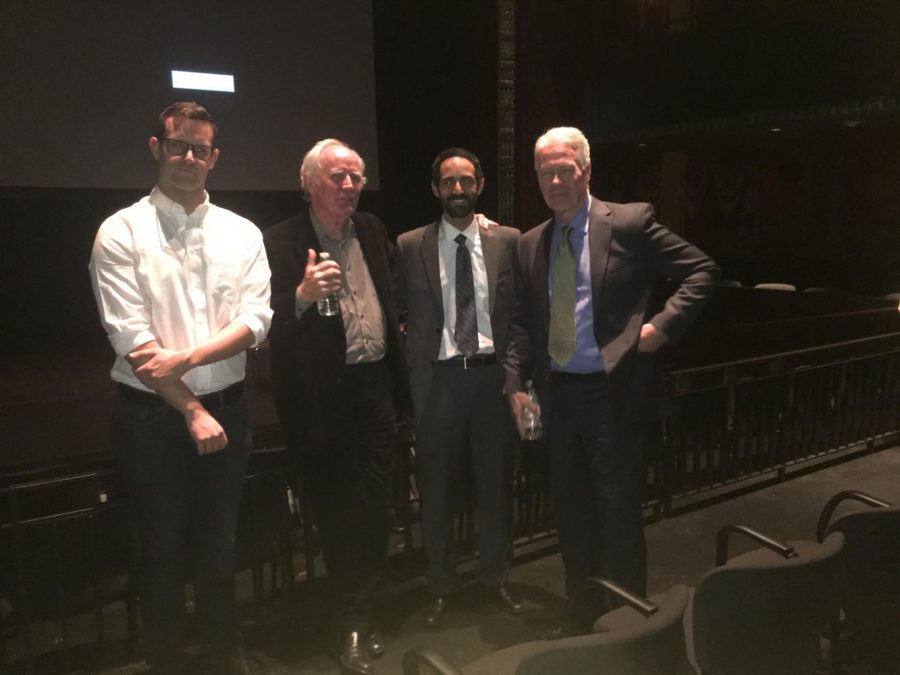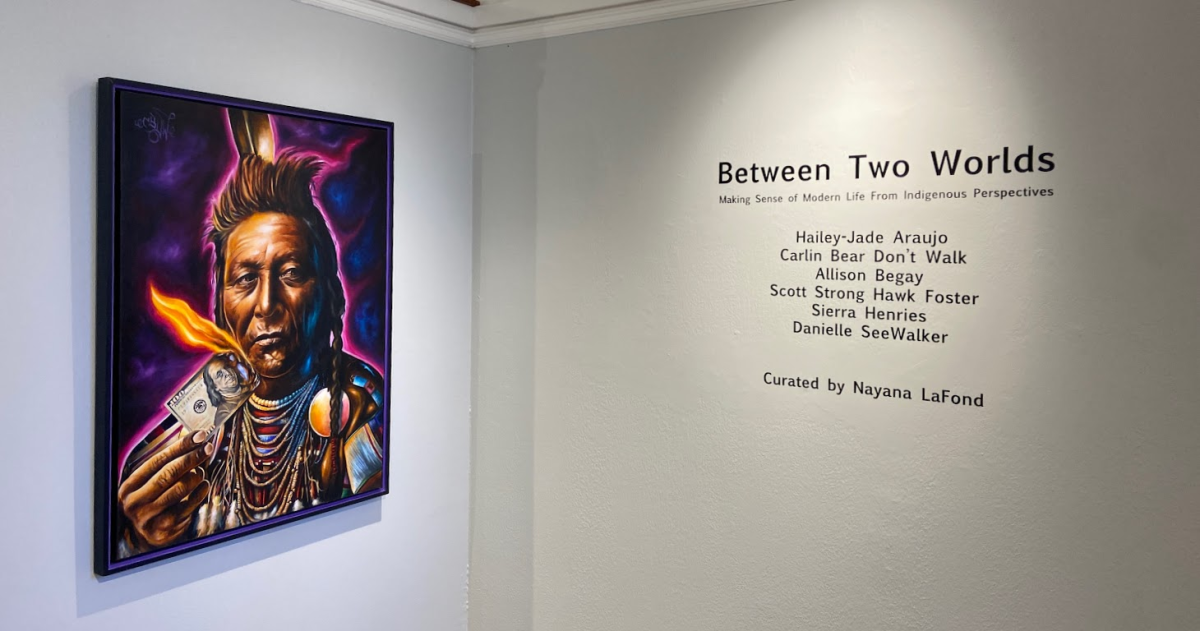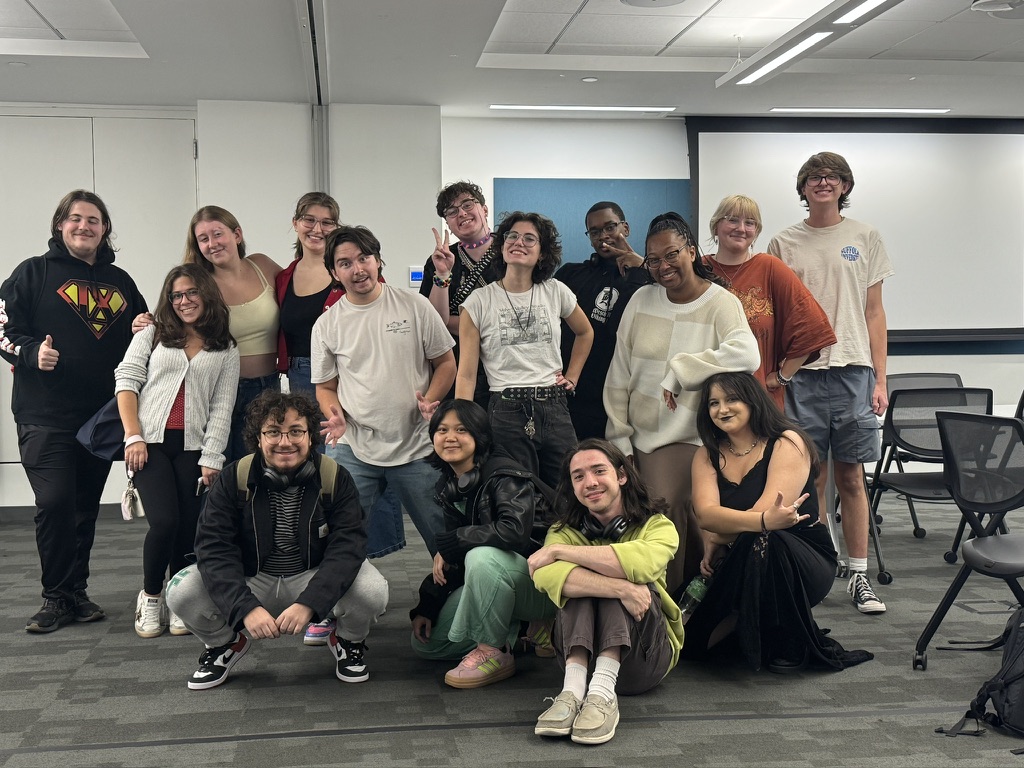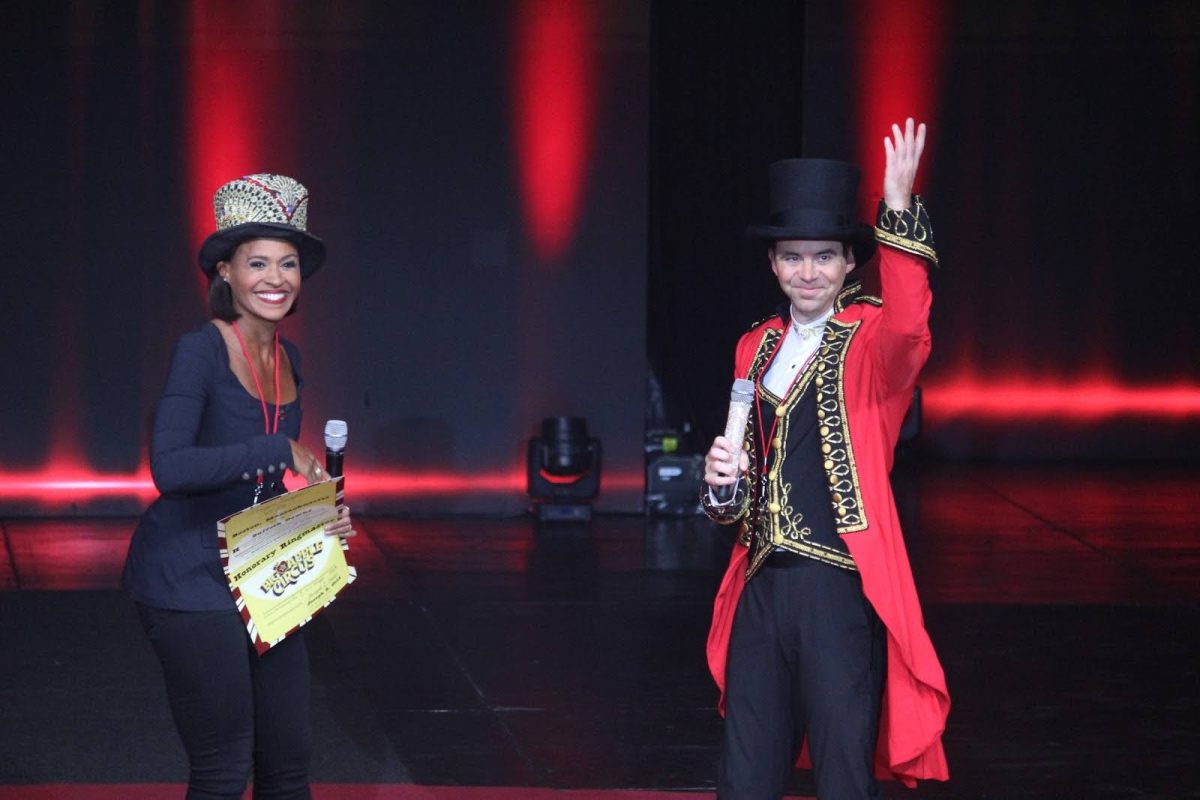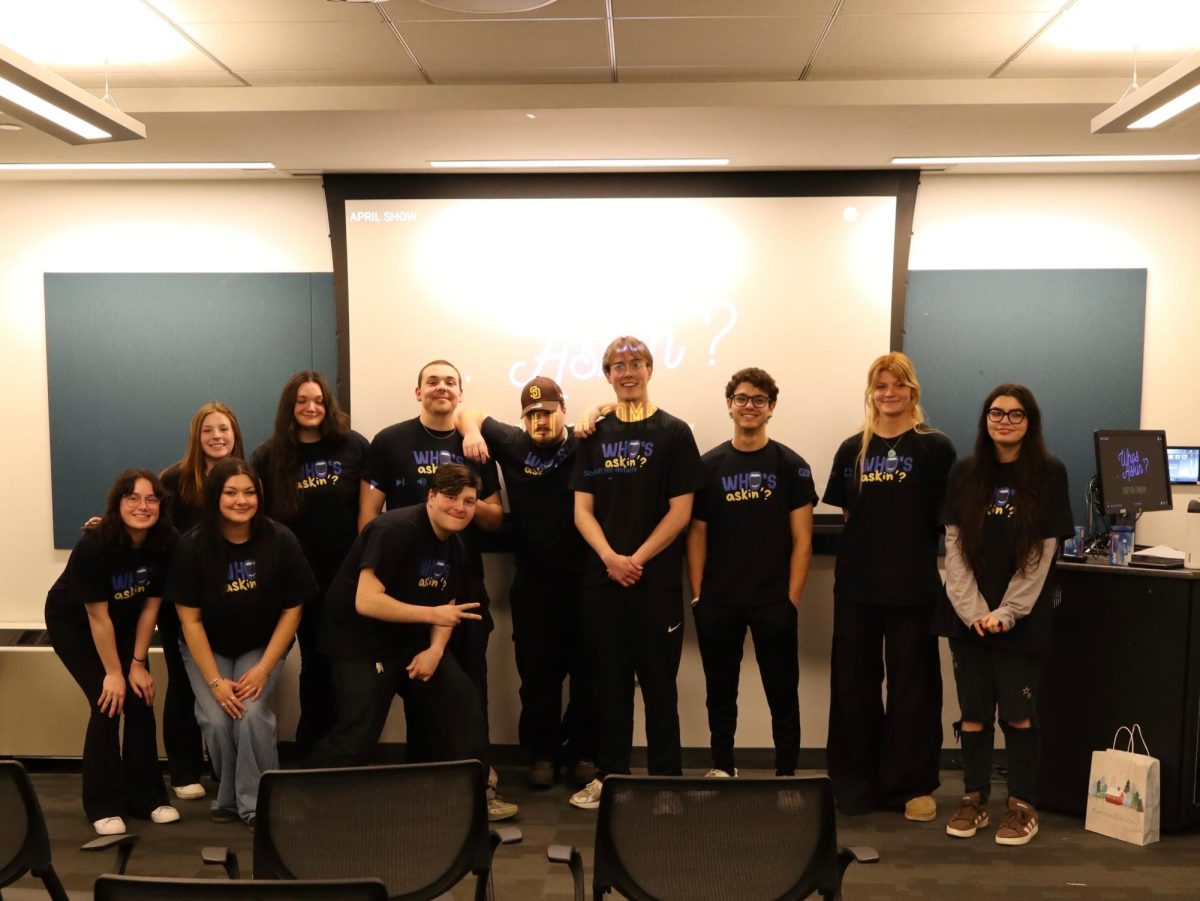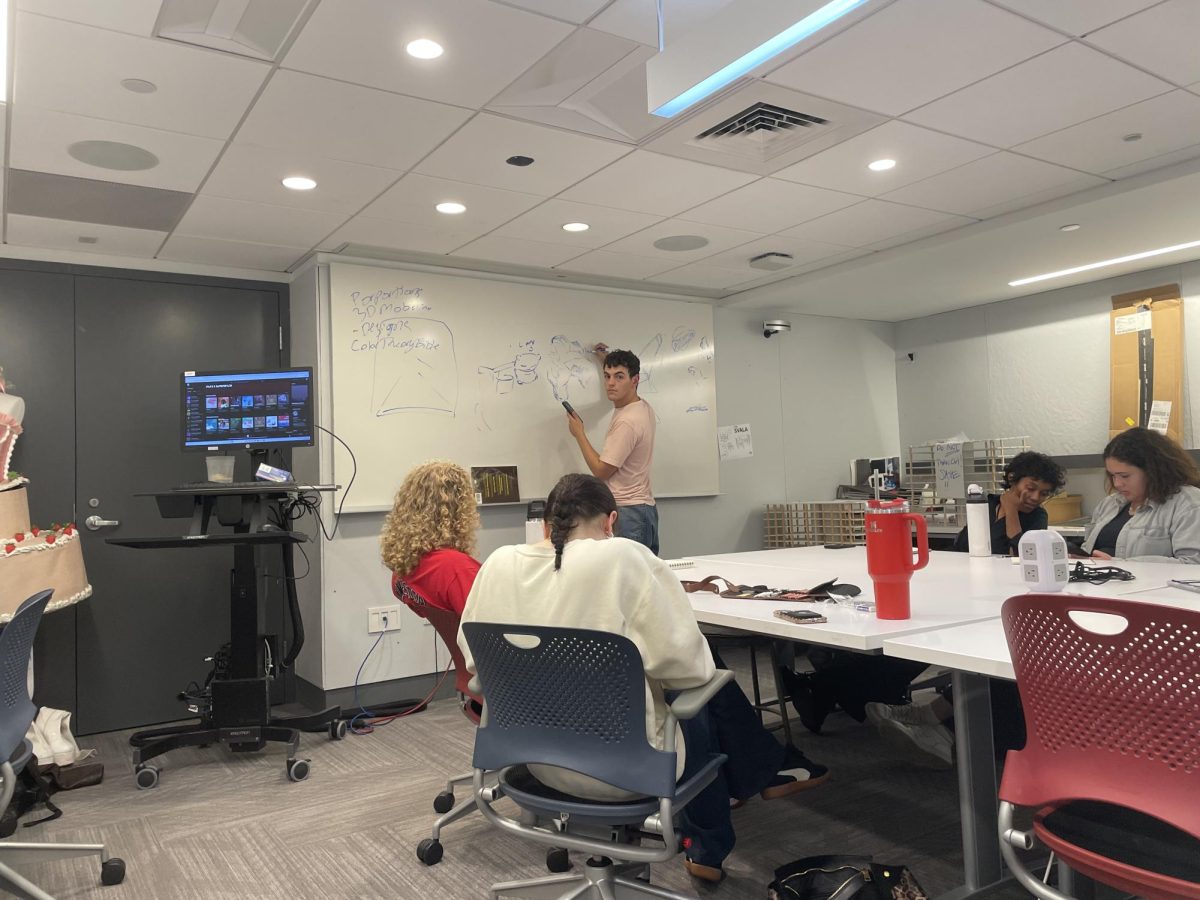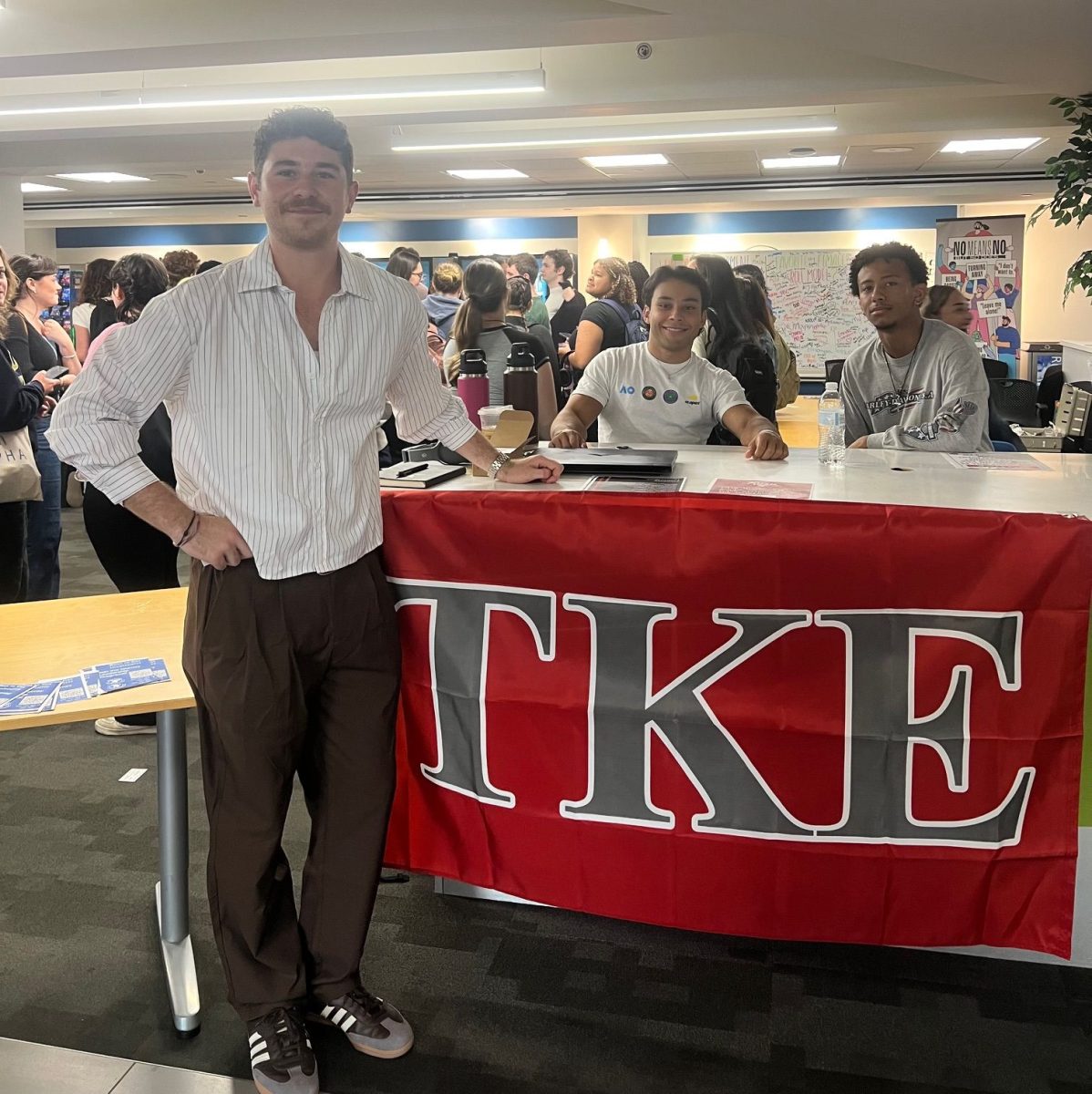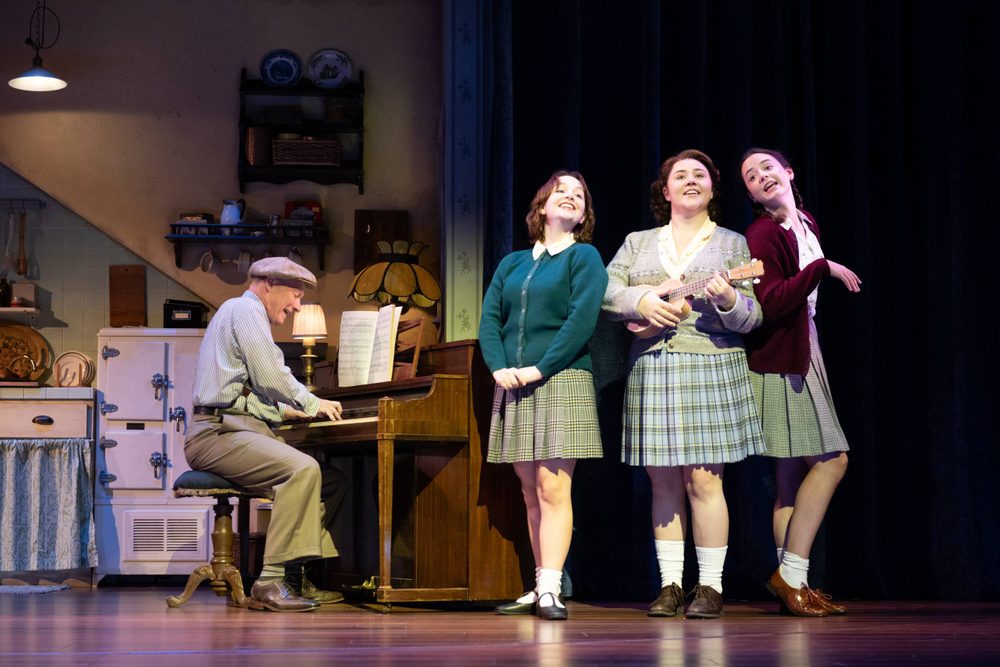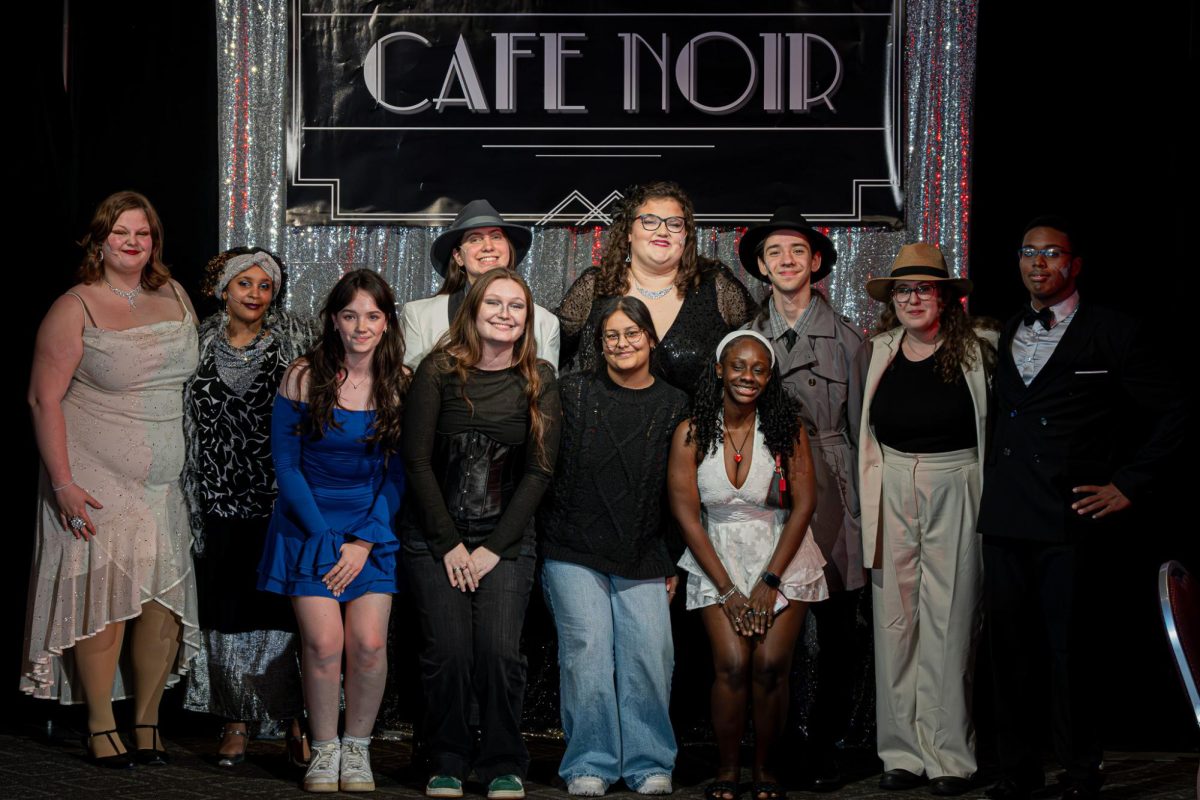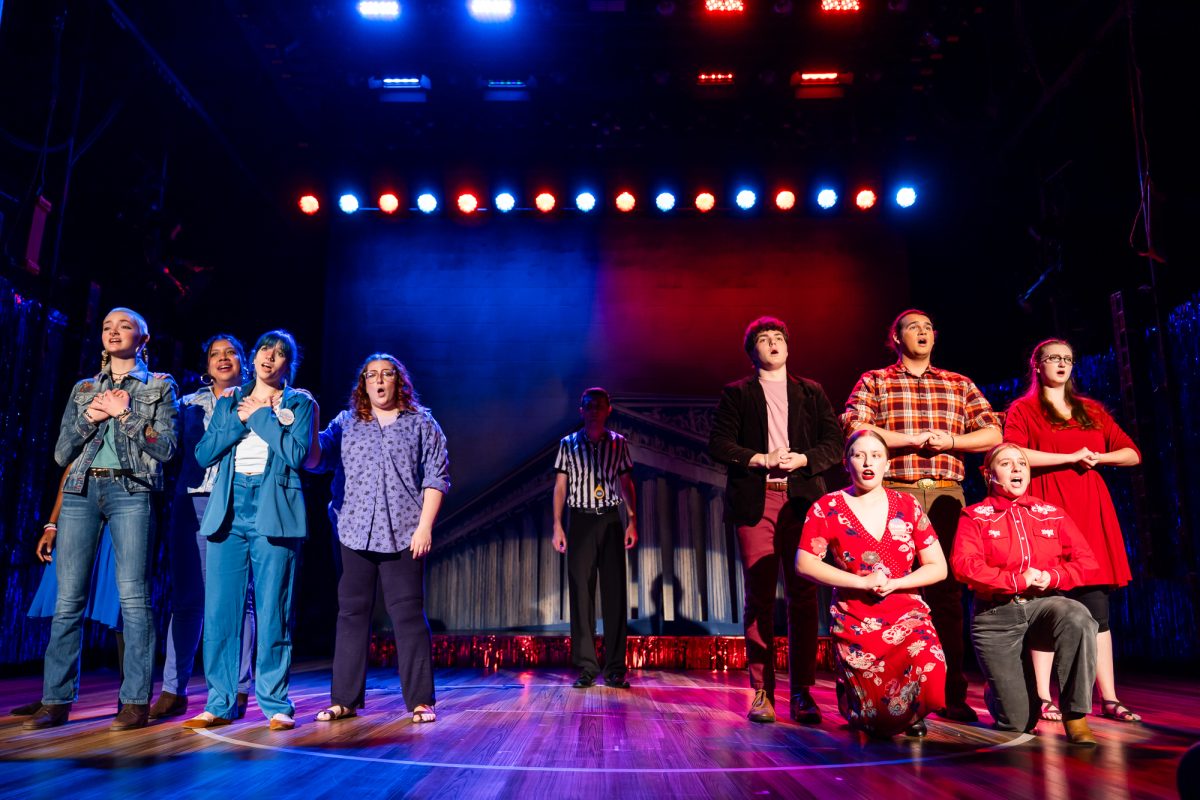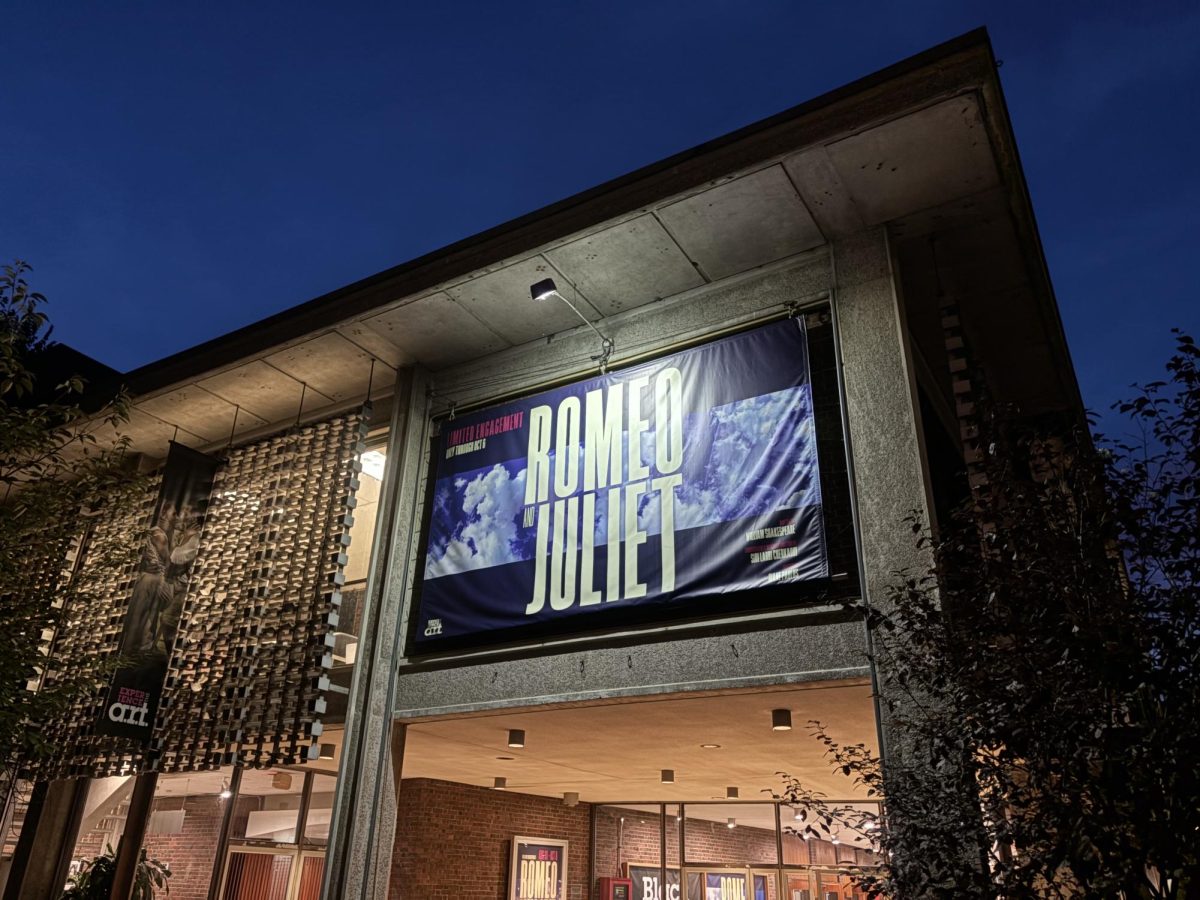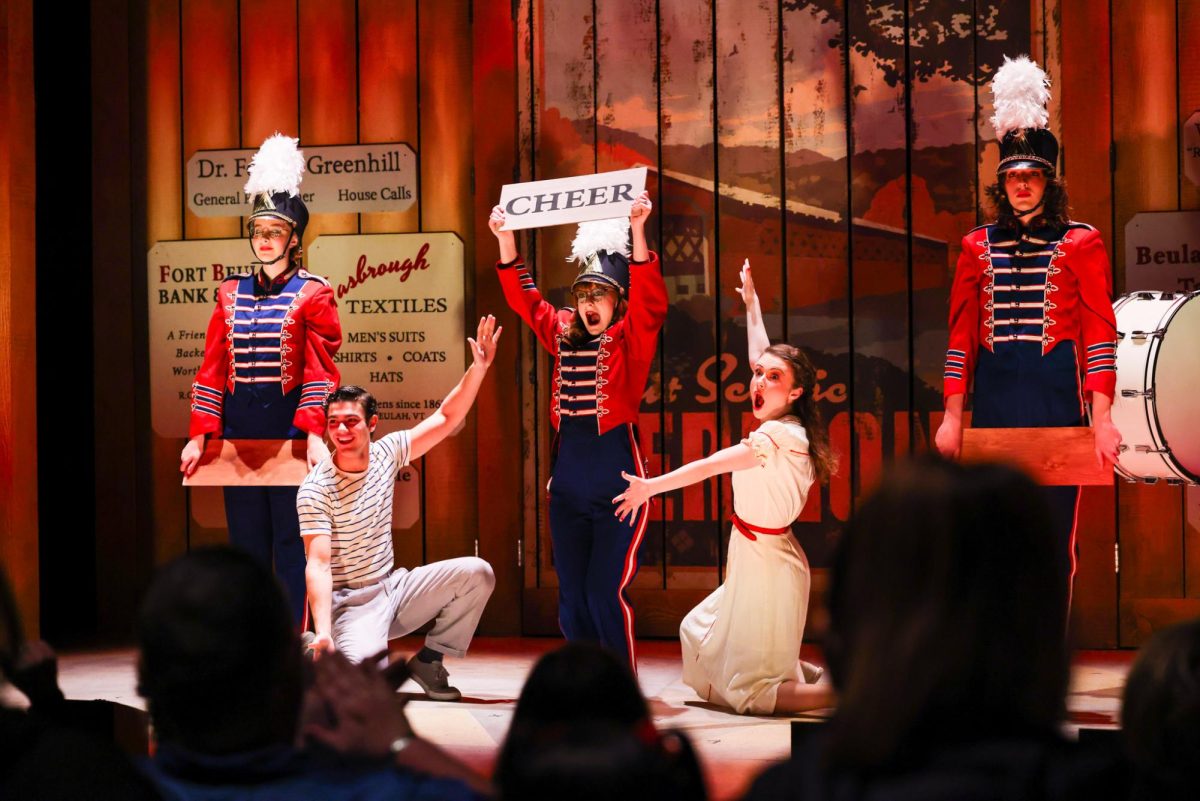Theatre is perhaps one of the most effective ways to articulate ideas and opinions, not only for the purpose of telling stories, but also to communicate powerful and political messages in a visually stimulating way. In James Carroll’s “Midnight Ride,” Carroll paints a vivid, detailed picture of United States’ first Secretary of Defense James Forrestal and his experience managing nuclear weapons in post-World War II and the effects of his decision on the global, nuclear progression thereafter.
Carroll’s ability to integrate non-fiction history with modern opinions and hypothesis has essentially introduced a new, simplistic and confrontational emergence of theatre.
“Who loaded the gun that Donald Trump is now pointing at the American future?” asked Carroll in a question and answer session with the audience after the play. This underlying question is what Carroll attempts to answer throughout the play.
The cast of five, composed of Actors’ Equity members and Suffolk alumni, took their places on stage at the Modern Theatre on Monday night for a staged reading of the play. Portrayed as an incredibly intelligent and thoughtful middle-aged man, Actors’ Equity member Benjamin Evett played James Forrestal with brusque enthusiasm throughout the reading.
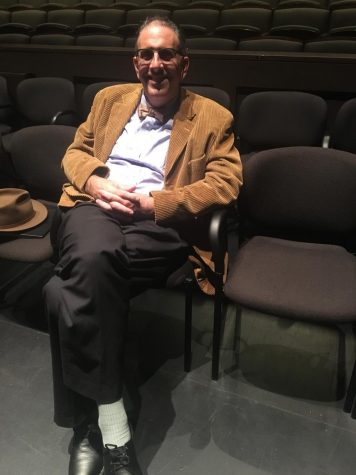
The first scene opened with the naval theme, “Eternal Father” accompaniment in the background, while projections of the Sept. 11, 2011 Pentagon attack created a backdrop for the actors. Quotes from Harry Truman, Ronald Reagan, the Iliad and other relevant origins were intermittently projected on the screen with the change of each scene to connect direct historical references to the emotion of each scene, making each scene more relatable for the audience.
Forrestal and his wife, Josephine, played by Actors’ Equity member Marianna Bassham, take the stage dressed in classic 1940’s attire: Forrestal, a classic dark gray suit with a white shirt and a black and white striped tie; and Josephine in a long, white and purple, floral, collared dress with her hair cut to a chin length bob, framing her face with loose, flowy curls.
The two engage in an argument centered around Forrestal’s nerves about attending a cabinet meeting at the Pentagon with Secretary of War, Henry L. Stimson, played by Actors’ Equity member Robert Walsh. Josephine tells Forrestal that she refuses to go to the Pentagon, explaining that she thinks it is haunted and that it is, “Just another tombstone,” effectively foreshadowing the Sept. 11 attack.
Upon Forrestal’s arrival at the meeting, he realizes that Stuart Symington, Under-Secretary for Air, played by Suffolk 2006 graduate and Actors’ Equity member Nael Nacer is present at the meeting as well, much to Forrestal’s displeasure. After a heated discussion between the three about how to deal with the atomic bomb, they receive a call from President Harry Truman, asking that he hear the plan from Forrestal, ultimately promoting Forrestal from Secretary of Navy to Secretary of Defense.
With the announcement of this plan on Sept. 11, 1945, Carroll asserts this as the beginning of the nuclear arms race with the Soviet Union.
“The facts of this moment have been driving the American race,” said Carroll in a post-show interview with The Suffolk Journal. “The course we took is fulfilling the worst possible vision of what was imaginable at the time.” Carroll said that he based the entire play off of the moment when the U.S. agreed to give the nuclear bomb to the United Nations.
Moreover, Carroll incorporated various references to modern issues, such as North Korea and ISIS, by utilizing Josephine, who had legitimate mental health problems during her lifetime, as a character that had “visions” of the future.
His purpose was to relate to what happened in the past and evaluate how the catastrophes of the modern world were rooted in the atomic bomb decision on Sept. 11, 1945. For those that had the privilege of working with Carroll during this process, they found the overall process extraordinary and quite prevalent in the world today.
“It’s chilling and engaging and exciting and terrifying,” said Evett. “There’s a lot that’s important here and that needs to be talked about.” Evett explained that working with Carroll was a very memorable experience because he has such an intimate relationship with the play which made the play itself all the more powerful.
“Working with James was an absolute delight,” said director Wesley Savick. “He’s such a smart and passionate man and he stays very focused on the things that matter.” Savick said that he enjoyed the overall process of being able to work with “a friend like James.” Furthermore, Savick hopes to see this progressive style of theatre utilized at Suffolk.
“I would love Suffolk to have a context for this. It is important to have plays that talk about political stuff like this right now,” said Savick. He told The Journal that he hopes to see the play performed in Washington, D.C. because of the reflective nature of the play unto the world.


